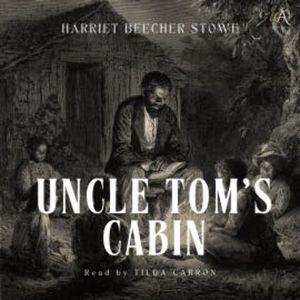First published in 1852, Uncle Tom's Cabin by Harriet Beecher Stowe became one of the most influential novels of the 19th century. A searing indictment of slavery, the story follows the trials of Uncle Tom, a deeply faithful and kind enslaved man, whose strength of character and devotion to God endure even under the harshest cruelty. Through his experiences and those of other enslaved characters, the novel exposes the moral and human cost of a system built on oppression.
The power of Stowe's work lies in its ability to combine storytelling with moral urgency. By presenting unforgettable characters—such as the saintly Eva, the courageous Eliza, and the tragic Tom—the novel humanized the plight of enslaved people and stirred compassion across the globe. Its impact on public opinion was so great that it became a rallying point for the abolitionist movement in America.
Today, Uncle Tom's Cabin remains a landmark in literature and history. Beyond its role in shaping political debates, it continues to resonate as a story of faith, endurance, and the unyielding demand for justice and human dignity.
